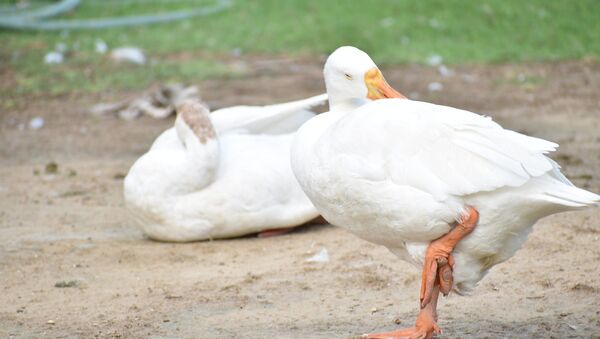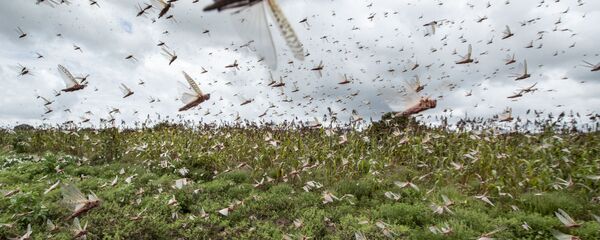A video of thousands of ducks, marching at the Chinese border as neighbouring Pakistan is battling the worst locust outbreak in decades, has been shared by the state-run China Global Television Network (CGTN). The broadcaster tweeted the clip with the caption "’Duck troops’ gather at the border to face locust swarms” which said that legions - 100,000 birds – are preparing for the potential emergency as 400 billion locusts are approaching China from the Indian-Pakistani border.
"Duck troops" gather at the border to face locust swarms pic.twitter.com/1J4r3dmmJk
— CGTN (@CGTNOfficial) February 19, 2020
Netizens could not resist the quacking agents, who can devour locusts, and flooded the comments with jokes and gifs.
We march !!! pic.twitter.com/rls1ZDOKkK
— Garda Daz (@DazGarda) February 19, 2020
I love this battle, its very organic pic.twitter.com/SF8pmK5mPl
— Charles (@LucidIdealist) February 19, 2020
Let me at em..... pic.twitter.com/wvhaqmSmfN
— Steve Atkins (@steveatkins1969) February 19, 2020
i would watch that movie
— banan ☭ (@LassPeaches) February 19, 2020
I’m gonna crazy 😂😂😂 what a world!!
— deseo (@desewon) February 19, 2020
Researcher at the Institute of Plant Protection of the Chinese Academy of Agricultural Sciences Zhang Zehua has told the news agency Xinhua that desert locusts are unlikely to move directly to China's inland areas, but the risk that the insects will migrate to the country in summer could sharply increase because of outbreaks abroad.
The swarms of locusts, devouring crops on their way, have already prompted the Pakistani authorities to declare a national emergency. The outbreak, deemed the worst one in two decades, has battered 40% of the crops there. The state authorities have considered importing insecticides from India, making an exception to the trade suspension over the Kashmir standoff, and getting help from China with chemicals.
The plague-like invasion of insects, said to be the worst in decades, earlier hit East Africa, namely Kenya, Somalia, Eritrea and Djibouti, with swarms spreading into Tanzania, Uganda, and South Sudan. The UN has warned that this could threaten 25 million people in Sudan with food shortages.



